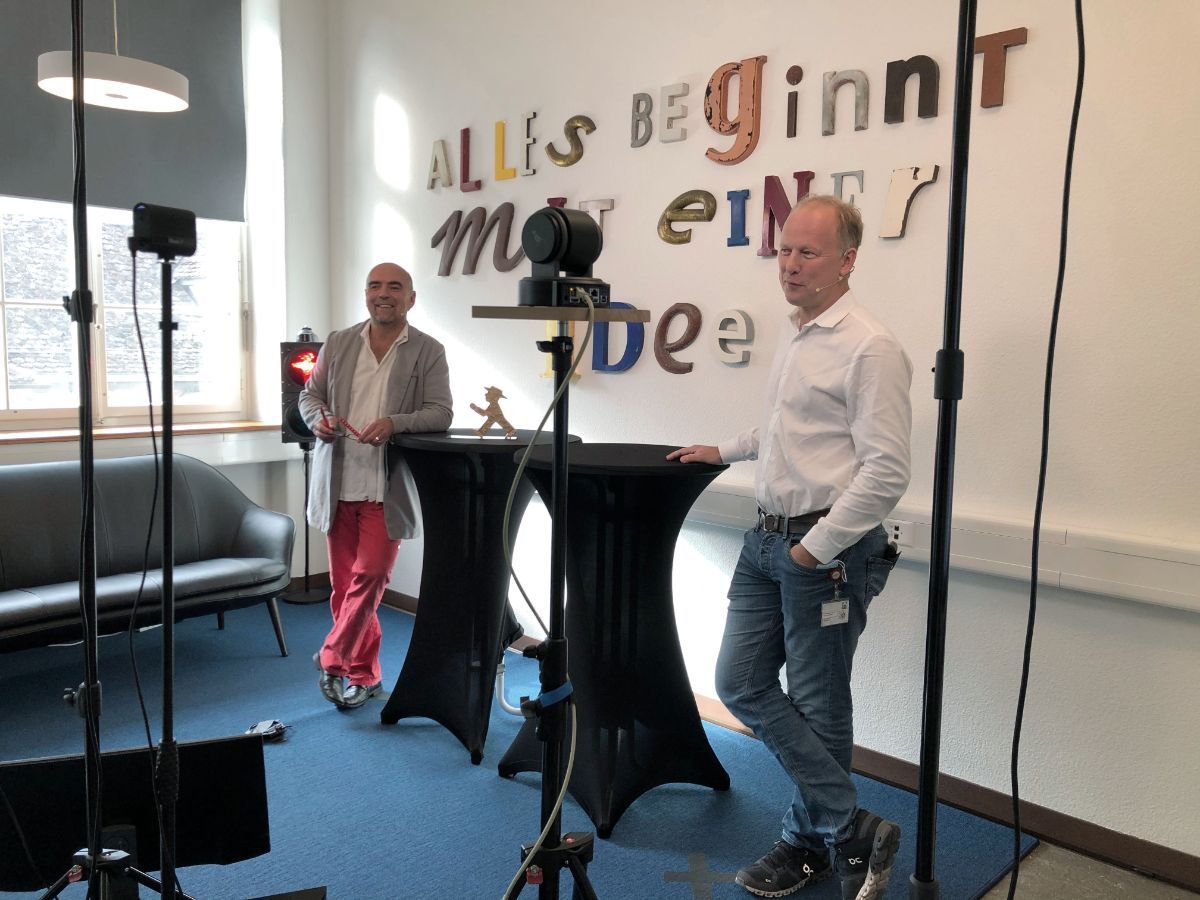
Digitalization & ICT
The Digitalization & ICT department (D&ICT) is a partner and provider of technological innovation and progress at the University Hospital Basel. It supports the departments, directorates and divisions with IT and communication tools to improve and digitalize their processes and services. The aim of D&ICT is to electronically map documentation across the entire patient care process and to increasingly provide digital applications, services and platforms - for employees, patients, referring physicians and other partners in the healthcare network.
IT strategy 2025
Shaping the future of university medicine is the central theme of the new Hospital Strategy 2025, bringing digitalization as a key driver of modern society much more into focus as a corporate task in the strategy of the University Hospital Basel (USB). Even though we are still at the beginning of this development, digitalization has already had a significant impact on us and our hospital.
The new strategy period is characterized by tackling further necessary changes in our processes, applications and systems, but also in our offerings and services for patients and employees - and at the same time supporting the USB's digitalization strategy in the best possible way.
The IT Strategy 2025 has been deliberately developed as a focused line strategy for the D&ICT division and, in conjunction with the digitalization strategy at the USB, forms an important basis for our actions in the current strategy period. We will therefore press ahead with the further development of our division into a service organization. The focus will be on developing operational excellence even further, aligning ourselves with professional service management, placing even greater emphasis on the development and expansion of platforms and creating the greatest possible transparency in terms of performance and costs.
Management
The Digitalization & ICT department (D&ICT) sees itself as a comprehensive and professional IT service provider for the USB and supports the departments of the USB in improving and digitalizing their processes and services with IT and communication tools. The division is guided by the mission statement of the USB, in particular the strategic success potentials (SEP).





Barbara Renner
Leiterin Kommunikation & Digitales Lernen D&ICT
Bereich Digitalisierung & ICT




D&ICT division - the departments: About us
Customer services
D&ICT Customer Services is the central point of contact for all IT concerns of the specialist departments and is responsible for the business relationship, demand and project management of D&ICT. The area of responsibility includes the establishment and management of the interface between the IT organization at the USB and the specialist departments, both at a tactical/strategic level (relationship management) and the recording and management of operational business requirements (demand management).
Project management ensures the effective and efficient support of the specialist departments in the implementation of ICT projects with interdisciplinary teams.
The D&ICT ServiceDesk is the primary point of contact at the operational level (Service Desk, Service Point, Incident and Problem Management, Request Fulfillment) for potential inquiries and faults.
Platform Services
The Platform Services department provides the infrastructural and technological basis for IT and is faced with the challenging task of guaranteeing the greatest possible stability as the basis for all systems (hardware and applications).
The Workplace team continuously improves the experience of all USB end devices and further develops the end user experience of the workplace. The Unified Communication and Collaboration team manages various collaboration platforms and implements new communication technologies. The Infrastructure team (network, servers, storage, data center, databases) is the heart of the systems and prepares services for all D&ICT teams. The Security Operations Center ensures the security of the IT landscape as a competent partner in cybercrime matters.
Staff
Modern, cutting-edge university medicine is no longer conceivable without end-to-end IT support. On the contrary: today, in a world characterized by digitalization, IT is a decisive strategic, qualitative and economic success factor for the hospital. The Digitalization & ICT department is the "preferred partner" at the USB, which is always the first point of contact in the hospital for all digitalization and IT-related issues thanks to its expertise, service offerings and the quality of its services. The staff in the Digitalization & ICT department bundles all overarching cross-divisional IT functions and actively supports the department's management in the strategic, tactical and operational design of IT service processes.
Research & Analysis Services
The F&AS department has two main areas of responsibility: IT-R&D and data warehousing (DWH). We work in a multidisciplinary team consisting of full stack programmers, image processing computer scientists, physicists, mathematicians and physicians. Examples of our tasks are the development and testing of software for clinical decision support, development and deployment of AI algorithms in the field of image analysis and text recognition (NLP) as well as complex interdisciplinary data analyses via the DWH.
Medical services
In addition to the operational operation of systems for the core business of the USB, D&ICT's Medical Services also includes the installation, maintenance and development of clinical systems.
In addition to their support activities, the application experts in the three operational teams also work on projects, set up new systems, design concepts/interface requirements, develop forms/reports based on user requirements and manage the system environments for which they are responsible over the entire lifecycle.
Quite a few of the systems in our portfolio have to be available to the clinic around the clock, which of course entails the odd on-call or night shift. Our system developers are based in the Integration & Robotic and Development & Monitoring teams. They work in a wide range of specialist areas. They develop and operate web or JAVA applications (SOA platform), interfaces in the Orchestra environment, RPA robots (UiPath) or our integration platform (Health Engine).
Administrative Services
With its application and SAP module experts, the Administrative Services department supports the operation and further development of IT applications for the USB's administrative processes and support areas.
In addition to a number of SAP modules and applications, this includes various other software solutions that contribute to the efficient handling of our personnel, operational, financial and patient management processes, among others.
The teams of application & SAP module experts work closely with the SAP technology and development teams within the department as well as across departments with IT colleagues and key users from the specialist departments.
From solution design to change, release and project management through to the operation and support of the systems and applications managed, they are responsible for their entire lifecycle process.
Innovation Management deals with the use and validation of new technologies such as mobile sensors and their application in the healthcare sector. The team tests innovative developments for possible areas of application in the treatment of patients and for the prevention of diseases. These projects and studies are driven forward by the research team and collaborations with international research groups and commercial partners.

Innovative ideas from our employees are born and brought to life at the Future Friday event organized by Innovation Management.

